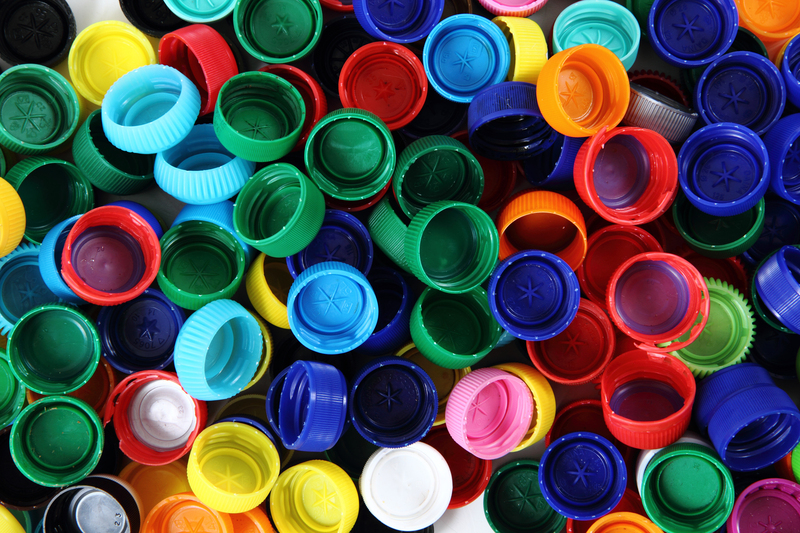Your Role in Responsible PPE Waste Disposal Practices: A Comprehensive Guide
In the wake of growing environmental concerns and the heightened use of Personal Protective Equipment (PPE), responsible waste disposal practices have become more critical than ever. Whether you are an individual, an employee, or a business owner, understanding your role in responsible PPE waste disposal is essential for safeguarding both public health and our planet. This guide explores the necessity, methods, and impact of proper PPE waste management, outlining steps you can take to contribute positively.
Why Is Proper PPE Waste Disposal Important?
PPE such as masks, gloves, face shields, and gowns have become staples in daily life, especially in healthcare and essential services. However, when not disposed of responsibly, these items can create environmental hazards, health risks, and even hinder waste management systems. Let's examine the major reasons why responsible disposal of PPE waste matters:
- Environmental Pollution: PPE material, typically made from plastics and synthetic fibers, takes centuries to decompose. Improperly discarded PPE increases pollution in landfills, waterways, and natural habitats.
- Wildlife Threats: Masks and gloves can entangle animals or be mistaken for food, risking their health and survival.
- Disease Transmission: Used PPE may carry pathogens. Careless disposal can spread infections to waste handlers and the public.
- Waste Management Challenges: Mixing of PPE with regular recyclables contaminates the recycling stream, increasing operational costs and inefficiencies.

What Constitutes PPE Waste?
To embrace responsible PPE waste disposal practices, it's crucial to first identify what counts as PPE waste. Common PPE items include:
- Disposable face masks
- Single-use gloves (latex, nitrile, vinyl, or plastic)
- Face shields and goggles
- Protective gowns and aprons
- Shoe covers and hairnets
- Respirators and N95 masks
- Chemical splash suits
Items that have come into contact with contaminants or biohazardous materials are especially critical for disposable handling.
Your Responsibility: Individual and Collective Actions
Every person has a role in responsible PPE disposal. Whether at home, at work, or elsewhere in the community, your actions contribute to a safer environment and healthier society. Here's how you can make a difference:
Individual Best Practices for PPE Waste Disposal
- Use Dedicated Waste Bins: Ask your local authorities about color-coded or labeled bins specifically for PPE. If not available, use a sturdy trash bag, tie it securely, and label as PPE waste.
- Never Flush PPE: Do not flush masks, gloves, or wipes down the toilet--this clogs sewage systems and contaminates water bodies.
- Minimize Waste When Possible: Opt for reusable PPE (like washable masks) when appropriate, to reduce single-use waste.
- Handle with Care: Always remove PPE by the straps, avoid touching contaminated surfaces, and wash your hands immediately after disposal.
- Keep PPE Separate from Recyclables: Do not place used PPE with recyclables; most are not recyclable through standard municipal systems.
- Follow Local Guidelines: Some communities have specific instructions for PPE waste. Stay informed on current regulations.
Workplace and Business Responsibilities
In workplaces, particularly in healthcare, hospitality, and retail, managing PPE waste is crucial to ensure employee and customer safety.
- Provision of Designated Disposal Points: Install clearly marked PPE waste bins in accessible areas.
- Regular Collection and Safe Storage: Empty PPE bins often, store waste securely, and coordinate with licensed waste disposal services.
- Employee Training: Educate staff about correct PPE usage, removal, and disposal to limit contamination and incorrect handling.
- Promote a Zero-Tolerance Policy: Discourage casual discarding of PPE on premises and in surrounding areas.
Understanding PPE Waste Management Policies
National and local policies shape how PPE waste is handled. Being aware of these regulations supports compliance and amplifies the positive impact of your actions.
- Health and Safety Laws: Many health departments have issued special guidance for safe PPE disposal practices during exposures, outbreaks, and pandemics.
- Biohazard Regulations: Infected or medical PPE waste should be treated as biohazard and managed through specialized containers and incineration or other approved methods.
- Environmental Protection Directives: Policies may mandate the reduction and proper separation of plastic waste, including PPE.
Role of Environmental Agencies and Industries
Agencies and PPE manufacturers have critical roles in establishing safe disposal mechanisms and innovating less harmful materials. As a consumer or business, you can advocate for and support producers that offer recycling programs and sustainable PPE alternatives.
Environmental Impact of Irresponsible PPE Waste Disposal
Research suggests that millions of face masks and gloves are discarded every minute globally. Here's how irresponsible PPE disposal affects us all:
- Plastic Pollution: PPE is mostly non-biodegradable. Discarded items break down into microplastics, contaminating soil and waterways.
- Wildlife Endangerment: Marine and terrestrial animals are at risk of entanglement or ingestion, leading to injury or death.
- Disease Spread: Used PPE in the environment can harbor pathogens, threatening humans and animals.
- Visual Pollution: Littered PPE degrades the beauty and sanitation of public spaces.
Climate Change and PPE Waste
Most PPE is manufactured from fossil-fuel-derived plastics. The production, transportation, and disposal of single-use PPE increase carbon emissions, indirectly contributing to climate change. Reducing, reusing, and recycling PPE where possible can shrink this footprint.
Innovative Approaches to PPE Waste Disposal
The surge in PPE waste has prompted both traditional and cutting-edge solutions to emerge. Here are some approaches gaining traction in the field of responsible PPE waste management:
- Specialized Collection Programs: Some municipalities and private companies offer PPE-specific collection and incineration or safe landfill solutions.
- Recycling Initiatives: Select manufacturers and recycling firms have begun accepting PPE for energy recovery and material recycling, though widespread adoption is still emerging.
- Biodegradable PPE: Researchers are developing and commercializing PPE made from biodegradable materials like polylactic acid or natural fibers.
- Upcycling Techniques: Creative projects turn used PPE into new products, such as construction materials and fashion items.
- Education and Awareness Campaigns: NGOs, schools, and businesses launch public campaigns to promote responsible PPE disposal behavior.
How to Encourage Responsible PPE Waste Disposal in Your Community
Individual choices matter, but collective action magnifies positive change. Here's how you can encourage responsible practices in your circles:
- Lead by Example: Always properly dispose of your PPE. Seeing your responsible behavior can influence friends, family, and coworkers.
- Educate Others: Share information about proper PPE waste disposal methods through discussions, social media, or community meetings.
- Push for Bins: Petition for more PPE bins in public spaces, schools, workplaces, or your neighborhood.
- Support Local Initiatives: Volunteer or contribute to local environmental groups working on PPE waste or litter cleanup projects.
- Work With Businesses: Suggest responsible waste options to local shops, especially those dispensing or requiring PPE use.
Common Myths About PPE Waste Disposal
Below, we debunk frequent misconceptions that can undermine responsible PPE waste practices:
-
Myth: "PPE can be recycled with regular plastic waste."
Fact: Most municipal recycling systems cannot process contaminated PPE safely. -
Myth: "Disposable masks and gloves are biodegradable."
Fact: Standard PPE is made from synthetic polymers and does not decompose naturally. -
Myth: "Flushing PPE is a hygienic option."
Fact: Flushing PPE can damage sewage systems and pollute water sources. -
Myth: "One person's contribution doesn't matter."
Fact: Every effort adds up--responsible disposal is most effective when widely practiced.
Future Directions in PPE Waste Management
As global PPE demand persists, governments, businesses, and scientists are working hard to address the long-term impact. Anticipated trends include:
- Expanded Producer Responsibility: Policies that make manufacturers responsible for the end-of-life disposal of PPE products.
- Sustainable Design: More innovations in compostable, reusable, and recyclable protective equipment.
- Integrated Collection Networks: Better infrastructure for the segregation and collection of PPE waste in public areas.
- Global Guidelines: Unified international standards for safe PPE waste disposal and recycling.

Summary: Your Role in Responsible PPE Waste Disposal Practices
Adopting responsible PPE waste disposal practices is a shared duty that begins with each individual's everyday choices. By making informed decisions--using appropriate disposal bins, never flushing PPE, separating it from recyclables, and advocating for sustainable options--we protect public health and preserve our environment. Your actions, whether at work, home, or in your community, make a tangible difference.
Let us all commit to upholding responsible PPE waste management practices for a healthier, cleaner, and more sustainable future. Remember, true change begins with your role in responsible PPE disposal.
Frequently Asked Questions (FAQs) on Responsible PPE Disposal
-
Can PPE be recycled?
Most single-use PPE cannot be recycled through standard curbside programs. Check for specialized local or manufacturer-led recycling initiatives. -
What should I do with used masks or gloves?
Place in a dedicated, sealed bag and dispose of in a landfill waste bin--not with recyclables. -
Are reusable masks better for the environment?
Yes. When properly maintained, reusable masks reduce waste and are a more sustainable option for everyday protection. -
What if I see PPE litter?
If safe to do so, dispose of it properly using gloves or a tool, and wash your hands thoroughly. Encourage others not to litter. -
How can businesses support responsible PPE disposal?
Providing clearly labeled PPE bins, staff training, and company-wide compliance with disposal protocols are effective steps.
Your commitment counts! Embrace responsible PPE waste disposal practices today--and be a part of the solution.
